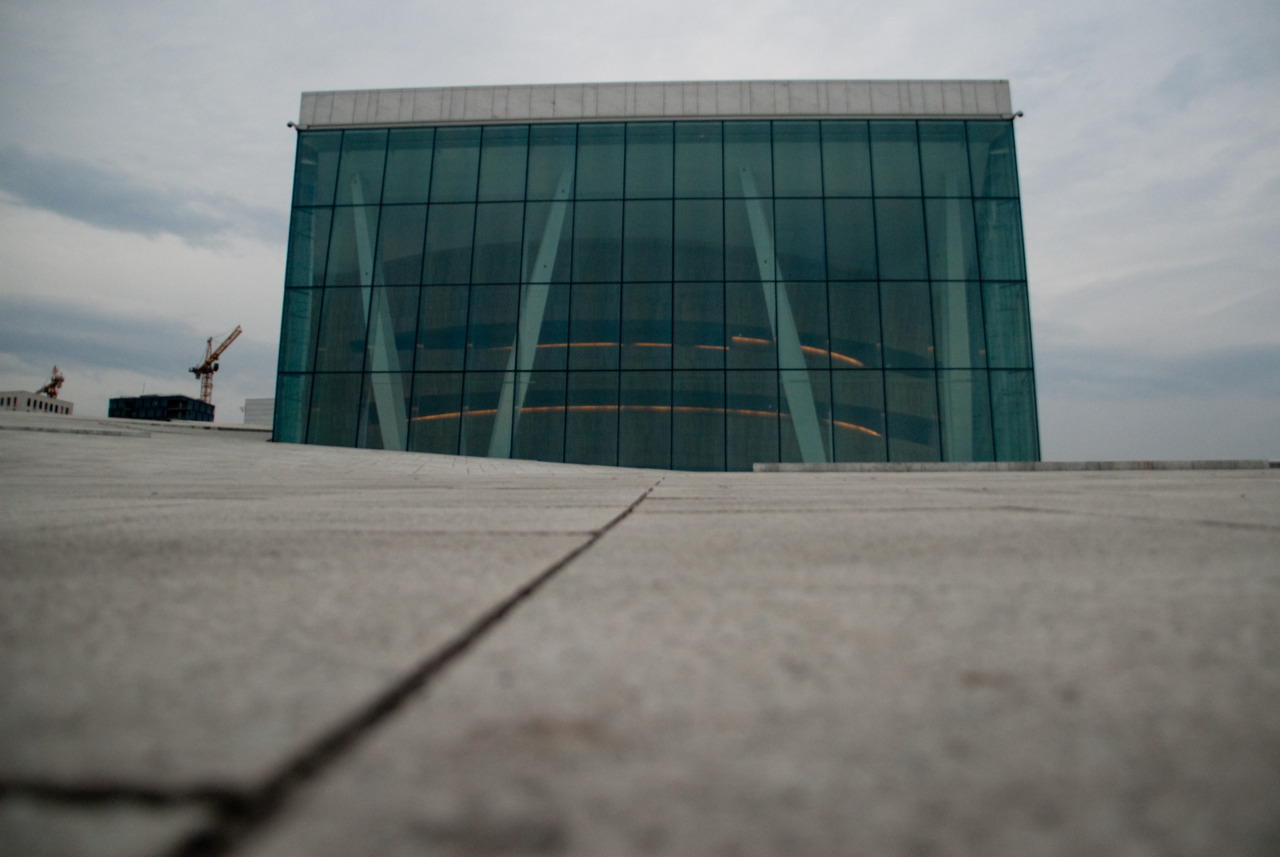anthony galvin
TAGGED: ARTS
Creative education is core.
Next month parliament will debate the removal of performing arts from exam options for 16-18 year olds. The debate will only take place because over 100,000 people signed an online petition. MPs on all sides seemed to have little understanding of the impact that creative and performance based subjects have on students. Both on their potential futures and the needs of businesses.
I am someone who benefited enormously from studying music and drama throughout my schooling. In particular studying performance based subjects at GCSE, A-Level and then at degree level. These studies equipped me for life and work in many ways.
These studies introduced me to a creative literacy that I hadn’t experienced before. The ability to communicate abstract thoughts or big ideas through sound, word or gesture wasn’t always part of my life. I grew up in a declining northern town in the 80s and 90s. Performing arts field trips to local theatres and concerts opened my mind to a broader view of the world. It wasn’t easy for most 16 year olds to stumble across Brahms or Brecht in Rochdale.
Beyond exposure to a broader hinterland, these performance lead studies also started to develop a set of softer skills. They gave me confidence in-front of an audience, the ability to communicate as part of a group and an understanding the importance of rehearsal time. These are skills I continue to use and develop as part of my day-to-day work. Without them I wouldn’t be able to do the job I do now.
As with most of our daily lives, technology plays an increasingly important role in performance and the arts. I spent my late teens playing with a whole range of niche and now obsolete devices. Trying to wrestle their output into some sort of communication or emotional response. I do the same sort of thing now, just with a different set of technologies.
The key skills of the future are creativity and communication linked to technical capability. We should be encouraging more children to take creative performance based subjects seriously, not fewer.
2016-06-09 10:58:07 GMT permalink

Oslo: Operahuset
Like a glacier sliding into Oslofjord, the opera house is a stunning piece of modernist architecture that stands in a corner of Oslo that is steadily being regenerated.
But it’s not just the location that is refreshing. The Operahuset is designed to be a platform, not just for opera but for people. You can walk up the mountainous slopes that make up the outer walls or stand on the different rooftops at the top of the building and gaze out across the bay. The building embodies the openness and belief in democratic access to the arts by the Norwegian national opera and ballet.
2012-03-29 21:16:00 GMT permalink
Le fils de l'épicier (2007) - A short review
Pacing a film seems to be a fading art, a skill whose time has passed, left only to the dedicated craftsmen. Fortunately one such cinematic artisan is Eric Guirado, the director of Le fils de l'épicier (The Grocers Son). The film, beautifully shot by Laurent Brunet, is a gentle tale that combines stunning Hautes-Alpes scenery with the tensions of familial obligation and the decline la belle France.
French cinema seems to be going through particularly nostalgic phase at the moment, and although Guirado’s first ‘fictional’ film showcases the beauty of rural France, with sun drenched valleys and sleepy villages, it doesn’t pull too many punches. There’s an all too direct undercurrent of anger and alienation, not amongst the young urban poor, of the kind explored by Mathieu Kassovitz’s La Haine, but an older, bitter and subtle disaffection of the those at the end of their youth whose lives are drifting.
There’s a wonderfully naturalistic feel to the film, especially in the performances of the elderly villagers, perhaps aided by the directors long career as a documentary filmmaker. The camera is allowed to linger and pause and the film breathes at a slow pace. Unfortunatley the ending is strangely rushed, and after such a largo rendition the finale seems to tumble slightly out of control towards it’s conclusion. Despite this the film is a beautifully observed piece with some lovely performances. One to watch on a Sunday afternoon, perhaps with a small pastis or two.
2009-10-30 23:54:00 GMT permalink
Ryan's Daughter (1970) - a short review
A critical failure on it’s release in 1970, David Lean’s follow up to Lawrence of Arabia is an unusual and beguiling film. Robert Bolt’s screen play reworks Madame Bovary to occupied Ireland in 1916. The star studded cast includes Robert Mitchum, Trevor Howard and John Mills. Sarah Miles is the ‘daughter’ of the films title, the emotional heart of the film as Rosy Ryan/Emma Bovary. However, it’s the scenery and dramatic west of Ireland coastline that dominates the film.
Shot on Super Panavision 70, by Lean’s cinematographer Freddie Young, the rugged coastline of the Dingle Peninsula is both beautiful and sinister. More than just a backdrop, the coves, castles and storms play an important narrative role in the film. The vast beach at Inch (now one of Ireland’s leading surf spots) is the setting for many of the films most important scenes. The film was nominated for 4 academy awards, winning 2 Oscars for John Mills, Best Supporting Actor and Freddie Young, Best Cinematography. If the Oscars had a category for best supporting scenery then the film would easily have won another.
Whilst the plot centers around the relationships between the Rosy and her lovers, the emotional heart of the film is the relationship between Miles’ character and reality. Her perception of love and life are so at odds with the day to day reality of living in a poverty stricken village that she exists in a parallel dream world, only occasionally visiting the mundane struggle of daily existence. Sarah Miles’ portrayal of this vibrant yet troubled and dislocated woman is excellent, her vivacity smashing onto the rocks of Mithcum’s taciturn school teacher who, although initially seems emotionally literate, sinks into a sullen silence in the face of his wife’s infidelities.
The film was much criticised on it’s release and seen by various interested parties as a critique of the Easter rising and the church’s dominant role Ireland. However, to read the film in this way is surely to see this subtle and complex film as a simple piece of agit-prop. Such a view also underestimates Lean as a film maker who makes great use of the location and cast. Audience attitudes to Ireland and the central characters have changed considerably in the 30 years since the film was made, in some ways this highlights the strengths of the film rather than undermine it.
2009-06-28 15:37:00 GMT permalink
Film binge - the menu
Looks like I’m about to start on a small film binge over the next few months. Here’s what I’ve queued up:
Aaltra (2004)
Man on Wire (2008)
My Winnipeg (2008)
Ryan’s Daughter (1970)
Saint Etienne - Finisterre (2005)
Uzak (2002)
Belleville Rendez-vous (2003)
Bicycle Thieves (1948)
Big Wednesday (1978)
Helvetica (2006)
Jules Et Jim (1961)
Subway (1975)
The Endless Summer (1964)
The Getaway (1972)
The Man Who Knew Too Much (1934)
Wild Strawberries (1957)
An Inconvenient Truth (2006)
Beckett On Film (2004 - 4 discs, 19 films)
Blindness (2008)
South (1919)
The Lost Weekend (1945)
The Grocer’s Son (2009)
Breaking Away (1979)
Gerry (2002)
Hell on Wheels (2006)
Looking for Eric (2009)
2009-06-09 12:03:00 GMT permalink
The Trespasser - A Short Review
By 1929 Gloria Swanson was thirty and had appeared in nearly 70 films, a real star of the silent era. She would make just 7 ‘talking pictures’. The first of which was The Trespasser, a melodramatic morality tale about a strong women who 'gets above her station’ by eloping with the son of a Chicago tycoon, becoming a working mother and then having an affair with her boss.
This film doesn’t provide any clues as to why Swanson’s career stalled with the introduction of sound. It’s a meaty role, she commands the screen and was nominated for an oscar for an excellent performance. The film, which she bankrolled, is no masterpiece but an entertaining piece that’s typical of it’s time with a feel good happy ending a hearty helping of moral certainty. Despite this there’s some good ground covered here. Whilst some of the acting is a little 'mannered’, there’s a real insight into how openly class ridden America was in the early twentieth century.
An excellent restored print, the convivial BFI atmosphere and an engaging introduction by archivist Clyde Jeavons. A good way to end an interesting LFF for 2008.
2008-11-02 20:17:00 GMT permalink
Louise-Michel - A Short Review
French co-directors Gustave Kervern and Benoit Delepine claim to be Belgian saying that although the French love French cinema the rest of the world is pretty ambivalent. If more French films contained the level of intelligence and humour found in Louise-Michel then French cinema would be displacing Hollywood in peoples affections.
This dark comedy contains some smart observations about the changing nature of employment and the world economy. But the movie is more than mere agit-prop. Some great performances particularly from Yolande Moreau in the lead role and a nicely observed cameo from Mathieu Kassovitz provide some real comic moments and perhaps create a new film genre: Franco-Belgian Anarcho Farce.
Ninety minutes of intelligent, hilarious and thought provoking entertainment. Maybe French cinema will be prepared to welcome Kervern and Delepine home.
2008-10-26 17:42:00 GMT permalink
Better Things - A Short Review
Before the screening of ’Better Things’ at the London Film Festival, Duane Hopkins spoke about the what had motivated him when making the film. He started by saying he wanted to get away from using plot and narrative to build a story. This would have been a good point to make our excuses and leave.
Hopkins employs a pointillistic style, with short scenes (often of only 10 or 15 seconds) to build up a picture of the alienation and isolation of (mainly young) people in a rural community. The film presents an unrelenting negative view of the characters, both young and old, with no relief for either the viewer or protagonists. The film is beautifully shot and coloured but there’s little else to admire beyond the bucolic photography. The dialogue is awful, like a Pinter send-up and the stunted scenes restrict any opportunity for the actors to engage with the audience.
Fundamentally though the problem lies with Hopkins’ view of humanity, which is so negative and joyless. Many people live difficult and complicated lives, but few would struggle on if they had as little humanity and spirit as Hopkins portrays in the film. There are many ‘Better Things’ than this.
2008-10-20 13:05:00 GMT permalink

Smile @ Honor Oak Tavern, SE23. First Sunday of every month. Great way to end a weekend. Especially if the boys from Skinny Lister are playing.
2008-10-05 23:25:00 GMT permalink















